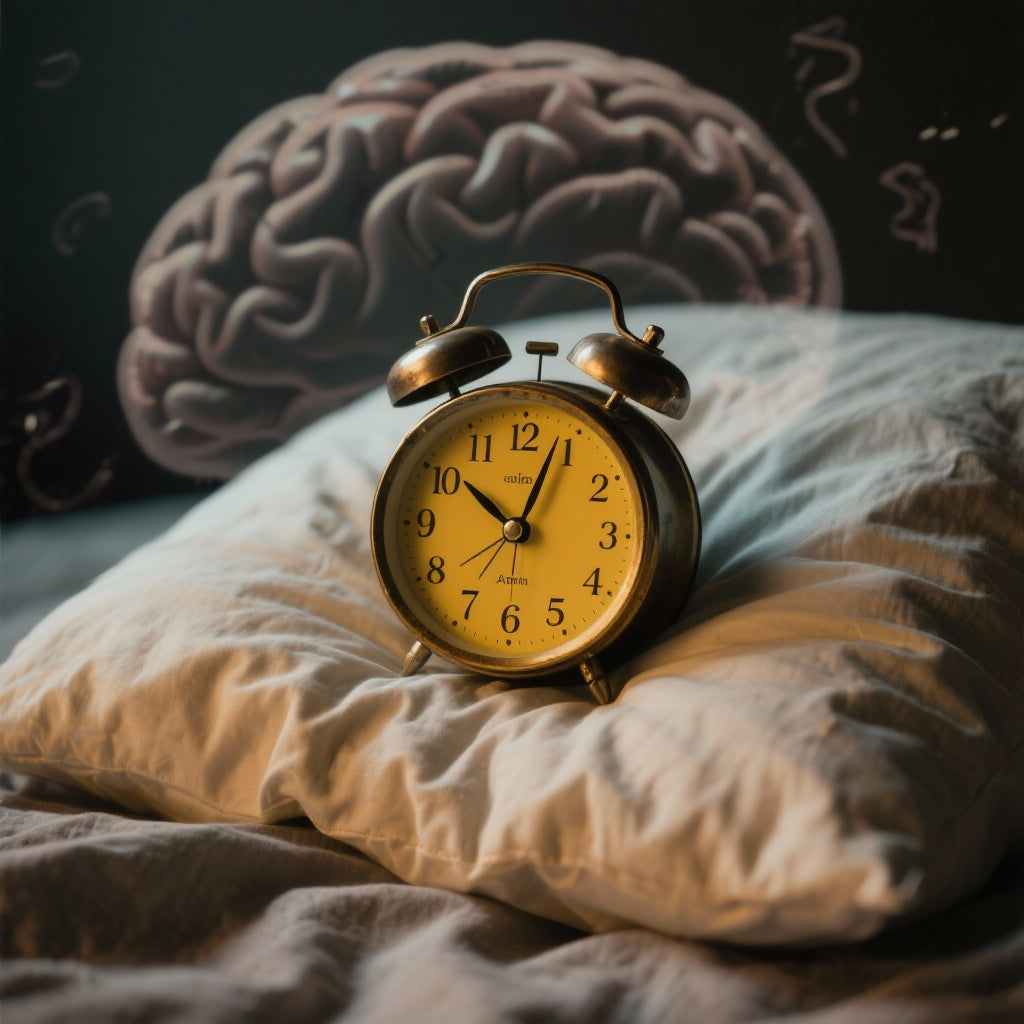The Snooze: What each "Snooze" does to your brain chemistry for the rest of the day
The snooze button, that tempting button on your alarm clock, promising a few extra minutes of sleep. Who hasn't used it? Yet, behind this brief respite lies a complex impact on your brain chemistry, influencing your mood, energy, and performance for the rest of the day. Let's explore together what the snooze button actually does to your brain.
Understanding the Sleep Cycle
To understand the effects of hitting the snooze button, it's crucial to understand the sleep cycle. A typical night's sleep consists of several cycles, each about 90 minutes long, alternating between light sleep, deep sleep, and REM sleep. REM sleep is the phase where dreams are most intense and is essential for memory consolidation and mood regulation. Waking up during a deep sleep phase can lead to a feeling of grogginess, often referred to as "sleep inertia."
Sleep Inertia: A Sudden Awakening
Sleep inertia is the state of disorientation and reduced cognitive performance that immediately follows waking. It can last from a few minutes to several hours. Pressing the snooze button puts you into a new, often incomplete, sleep cycle, which, once interrupted, exacerbates sleep inertia. Studies have shown that sleep inertia can affect alertness and executive functions , making it more difficult to concentrate and make decisions.
Snooze and Cortisol: A Rise in Stress
Cortisol, often called the stress hormone, plays a crucial role in the sleep-wake cycle. Normally, cortisol levels rise naturally in the morning to help us wake up and be alert. However, hitting the snooze button disrupts this process. Each time you briefly fall back asleep, your brain prepares for a new sleep cycle, then is abruptly awakened. This series of false alarms can lead to an excessive rise in cortisol levels , contributing to feelings of stress and anxiety first thing in the morning.
Adenosine: A Confusing Signal of Fatigue
Adenosine is a chemical that accumulates in the brain throughout the day, promoting sleepiness. During sleep, adenosine is cleared, allowing us to wake up refreshed. Snoozing disrupts this process by creating a brief period of sleep that isn't long enough to significantly reduce adenosine levels. The result is a persistent feeling of fatigue, even after "sleeping" for a few more minutes.
The Psychological Impact of Snooze
Beyond its biochemical effects, snoozing also has a psychological impact. It can reinforce feelings of a lack of control over your schedule and difficulty in keeping your commitments. By giving in to the temptation to snooze, you could unintentionally sabotage your motivation and discipline for the rest of the day. Furthermore, the anticipation of the next alarm can create anxiety and tension, negatively impacting the quality of your sleep, even during those short intervals.
Alternatives to Snooze: Reprogram Your Alarm
If you're used to using the snooze button, you can reprogram your alarm and adopt alternative strategies to wake up more easily. Here are a few suggestions:
- Regularity: Try to go to bed and wake up at the same time every day, even on weekends, to regulate your biological clock.
- Exposure to light: Expose yourself to natural light as soon as you wake up to signal to your brain that it is time to be alert.
- Gradual wake-up: Use an alarm clock that gradually increases brightness or volume for a gentler wake-up.
- Physical activity: Incorporate a short morning exercise session to boost your circulation and energy.
- Morning ritual: Create a pleasant and motivating morning ritual to encourage you to get out of bed.
Conclusion: Say Goodbye to Snooze for a Healthy Brain
The snooze button may seem like a quick fix to grab a few extra minutes of sleep, but it comes at a significant cost to your brain chemistry and overall well-being. By understanding the effects of snoozing on your sleep cycle, hormones, and mental state, you can make informed decisions and adopt healthier habits for a more energized awakening and a more productive day. Say goodbye to snoozing and hello to a healthy brain!











